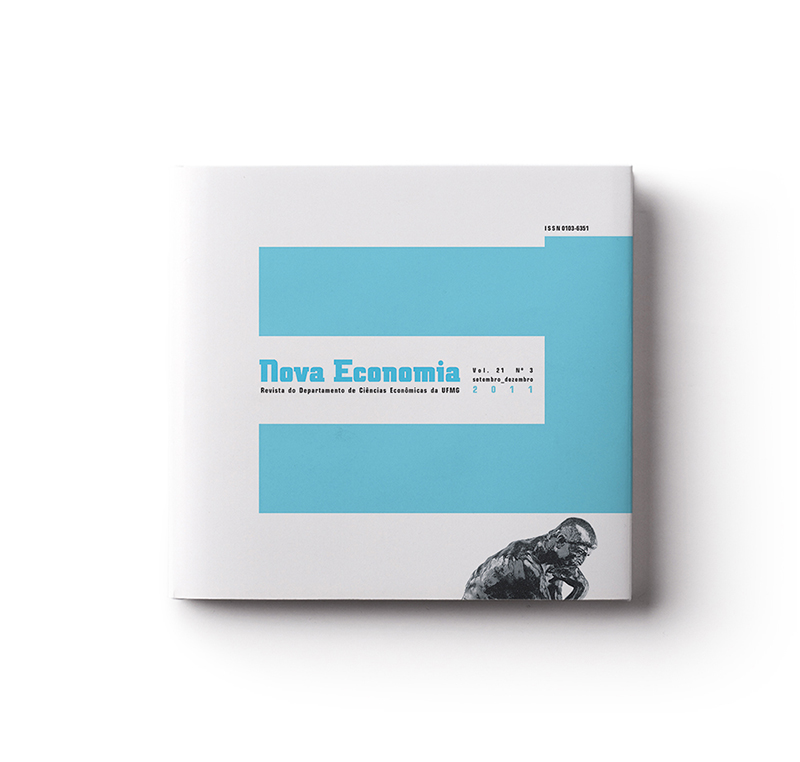Câmbio real, poupança doméstica e poupança externa: análise teórica e evidências empíricas
Keywords:
nível do câmbio real, poupança doméstica, poupança externa, desenvolvimento econômico, deslocamento de poupançaAbstract
Este trabalho tem como principal objetivo investigar as relações entre nível da taxa de câmbio real, poupança externa e poupança doméstica em países emergentes. Dentro do modelo aqui explorado, casos de sobrevalorização excessiva do câmbio real levam a redução de margens de lucro nos setores de produção de bens comercializáveis, resultando numa queda importante no nível de poupança agregada doméstica. A análise econométrica do trabalho indica que a desvalorização relativa da taxa de câmbio parece ter impactos relevantes nos níveis de poupança doméstica de países em desenvolvimento. Os resultados das estimações, em todas as especificações, apontam para uma robusta e significativa relação positiva entre o índice de desvalorização relativa da taxa de câmbio real calculada e a poupança doméstica/PIB.Downloads
Published
2012-05-07
How to Cite
ROCHA, M.; GALA, P. Câmbio real, poupança doméstica e poupança externa: análise teórica e evidências empíricas. Nova Economia, [S. l.], v. 21, n. 3, 2012. Disponível em: https://revistas.face.ufmg.br/index.php/novaeconomia/article/view/1591. Acesso em: 19 feb. 2026.
Issue
Section
Regular Issue
License
Authors who publish with this journal agree to the following terms:
- Authors retain copyright and grant the journal right of first publication with the work simultaneously licensed under a Creative Commons Attribution 4.0 International License that allows others to share the work with an acknowledgement of the work's authorship and initial publication in this journal.
- Authors are able to enter into separate, additional contractual arrangements for the non-exclusive distribution of the journal's published version of the work (e.g., post it to an institutional repository or publish it in a book), with an acknowledgement of its initial publication in this journal.
- Authors are permitted and encouraged to post their work online (e.g., in institutional repositories or on their website) prior to and during the submission process, as it can lead to productive exchanges, as well as earlier and greater citation of published work (See The Effect of Open Access).




